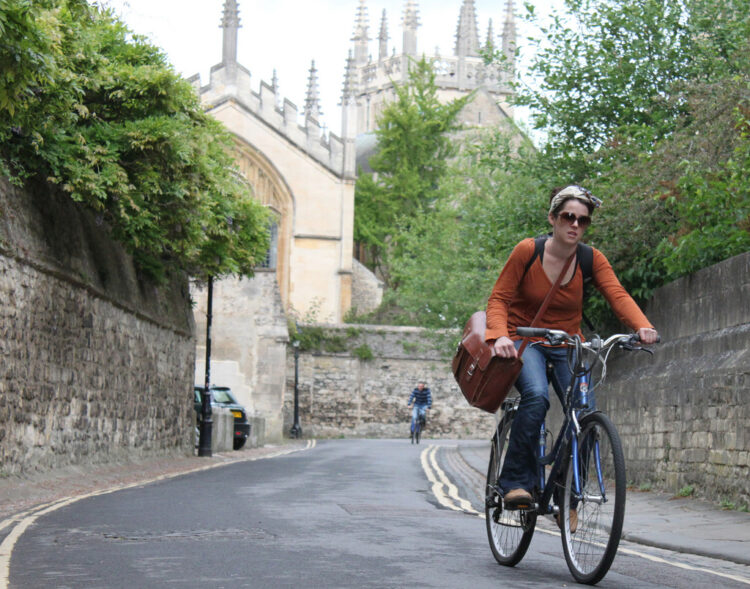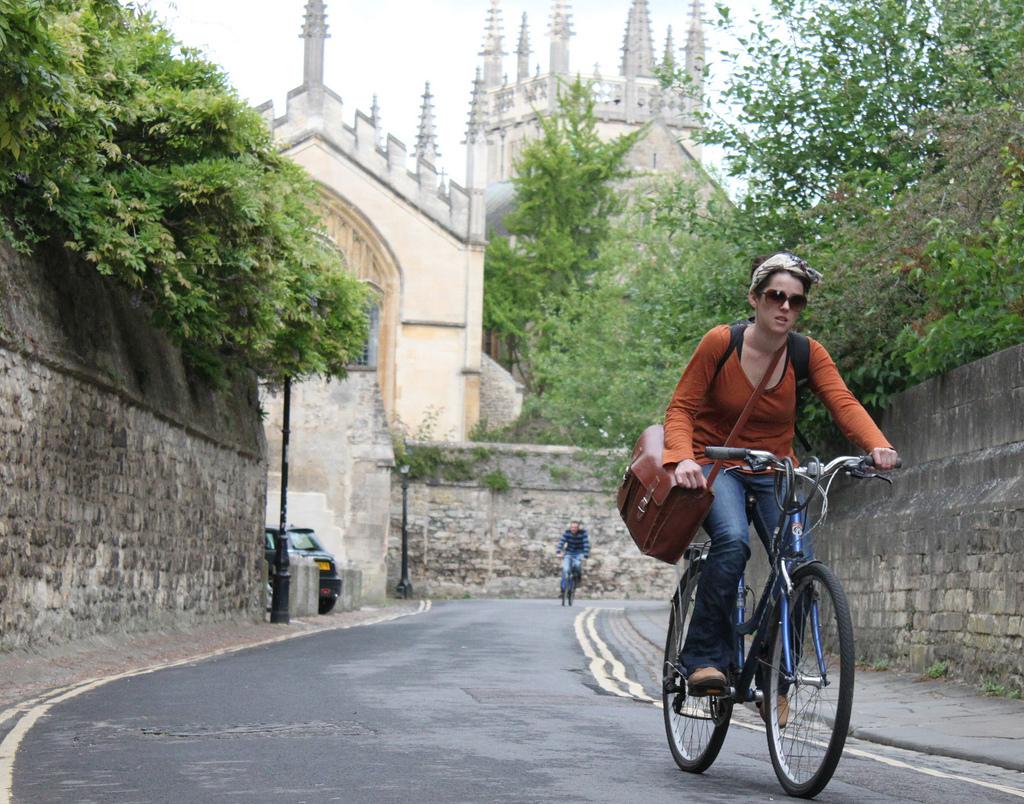Ten years ago, I weighed about 300 pounds. I managed to lose about 50 pounds and then plateaued for quite some time. I found myself, like many people, sitting for long periods of time, working long hours and eating poorly. In July 2011, while deeply entrenched in my business, I decided enough was enough and set out to lose the remaining weight to put me under 200 for the first time since I was 19. The cornerstone of my plan was healthy eating and exercise. I don’t like the gym, but I like to bike. And so my love affair with cycling began. I took advantage of every opportunity to bike: Thanksgiving at my brother-in-law’s house, 50 miles away. Client meetings in Manhattan, eight miles away. I did a big project 30 miles away and biked there at least three times per week. By May 2012, I had lost the weight. As a founding Partner and CEO of Synthenai, a business advisory firm, I learned lessons from cycling that I never would have picked up going to conferences, sitting in an office or attending seminars.
1. Don’t expect too much from any one thing…
When I began to lose weight, it was exciting to see the number diminish. I learned early that expecting any one ride to have a monumental effect was counter-productive. No one ride mattered, actually. Habits form over time, and I was training myself to bike as often as possible. The accumulated rides, healthy eating and mental focus I put into losing weight combined to make me successful. At first, it felt depressing to think a single action has little significance until I looked at the bigger picture. Each ride did have value; each enabled me to ride a bit faster, a bit further and burn a bit more fat. Each healthy meal option I selected put fewer calories in my body and weaned it away from sugars and fat. Although no one action was the magic bullet, all the actions were necessary to accomplish the goal. In business, as in cycling, success is earned through sustained commitment.
2. Focus intently on the present, and solutions may present themselves
An unintended consequence/benefit of bike riding was my ability to solve complex problems and generate new ideas…without trying. It takes about two hours to bike the 30 miles to one of my clients. There are hard parts of the ride that require all my mental energy. Often, right after one of these situations, an idea will dawn on me. I’ll begrudgingly stop the bike, write down the idea and push on. The name of my company, numerous marketing ideas and vast swaths of a book I’m currently writing have been conceived this way. Sometimes, the brain needs a break from working. Business is a series of meetings, calls and decisions that should be interrupted occasionally. By forcing myself to focus on other things, my subconscious mind was allowed to rearrange and coalesce thoughts. Don’t underestimate the power of meditation or exercise to help solve the most perplexing problems.
3. Trust the forward road
On one particularly hot day, I needed a break for water. My sunglasses fogged to the point of uselessness. The sun was blazing, and I wasn’t sure what to do. I pushed on, determined to find a solution. Lo and behold, within just a few seconds, my glasses cleared. I would not have seen the solution had I not pushed on. Sometimes, with a little faith and constantly moving in a forward direction, solutions can present themselves. Always move forward.
4. Pace Yourself
As I near the goal, I’m usually exhausted and proud and want to coast in. But the ride is not over until the goal is achieved. The last mile can be just as important as the first. Inexperienced riders and runners often come out of the gate too fast and lose momentum toward the middle of the ride, barely limping into the finish. A business is like a marathon. Many entrepreneurs think explosive growth equals success, but long-term sustainability can only be achieved through thoughtful planning and attention to all business functions. Effective marketing is not enough if a company is not capable of handling increased sales or customers over the long-term; human capital and technical capabilities must be considered. When cycling, knowing how far I need to go helps me to plan my pace and energy output, so I can manage the entire ride. There are many miles to cover, as well as unexpected obstacles. The best way to prepare is to treat each mile with equal importance and push until the end.
5. Sometimes it is necessary to take a step back
Each time I set out to ride, I intend to finish. I’m competitive, so I also intend to surpass my previous record. Sometimes, that’s not possible. Sometimes, I have to quit a ride. It took me a long time to understand this isn’t defeat. On one recent 50-miler, I was battling constant 15 to 20 mph headwinds in 35-degree weather. I was neither dressed appropriately nor physically accustomed to such conditions. I had an important meeting that night and needed to run the next day to keep up my training regimen. I bailed on the ride. At first, it was upsetting. I could have completed the journey, but the consequences might have been too great. I might have fallen asleep at my meeting or have been too sore to continue training. Bailing on that ride was calculated and smart. In business and cycling, we often get bogged down with immediate goals we want to achieve. It is imperative to remain flexible. Sometimes we must take the long view.
6. The best equipment in the world is no match for hard work
As I increased my mileage capability, I started to seek other courses and challenges. I found the George Washington Bridge and Route 9W in New Jersey, where many of the New York City cycling elite come to pedal. I have a decent bike, but it is nothing compared to the $10,000+ frames I see there. Many of them pass me, but I also pass plenty of them on my bike, which was a fraction of the cost. Good equipment helps, but not as much as effort, practice and training. The weekend warriors who haven’t touched their bikes since last week are no match for my 100+ miles per week through all sorts of weather. Entrepreneurs and young companies are often struggling for every dollar. They can’t afford the best equipment. But frugality and struggle breeds innovation and opportunity. The best equipment is no match for passion, tenacity and fortitude, the key ingredients for a successful business.





